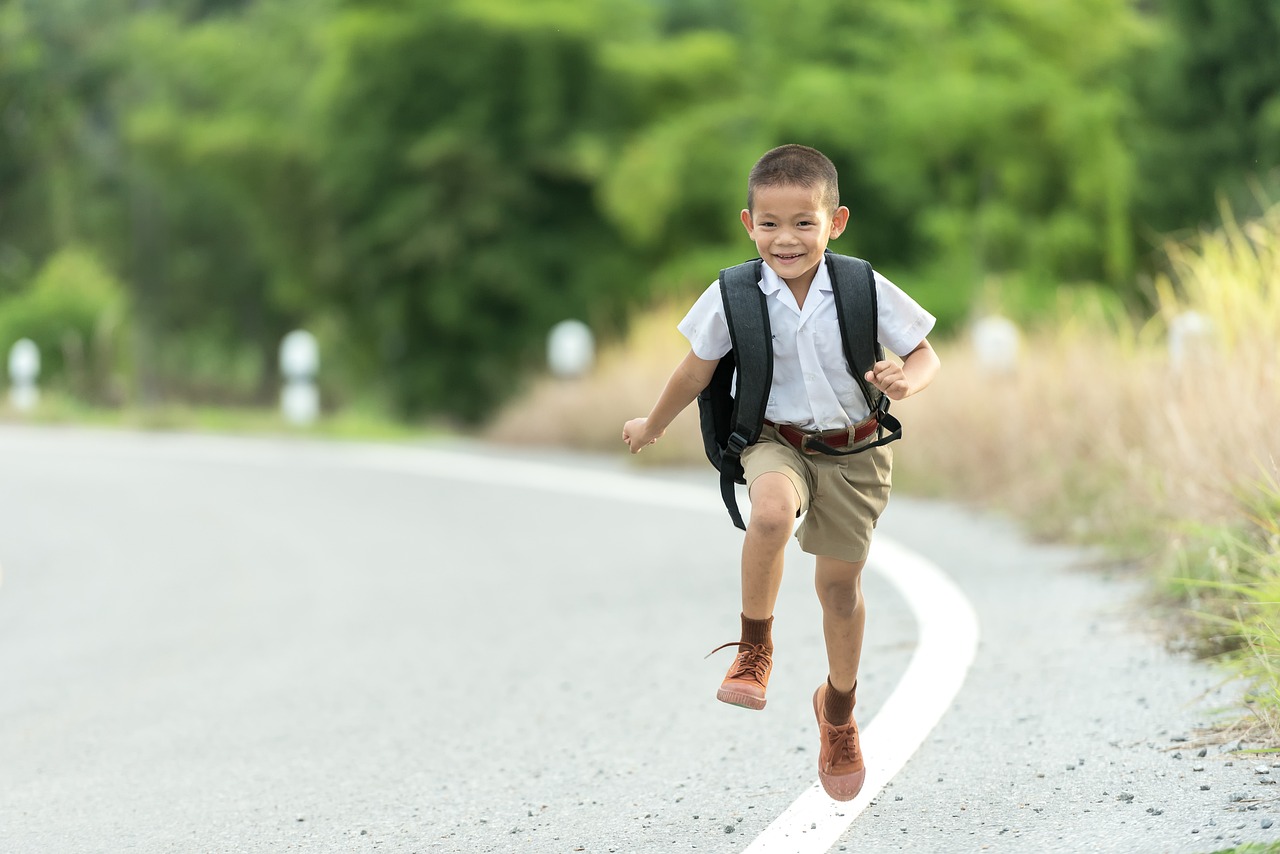As parents, one of our most rewarding responsibilities is helping our kids master the art of self-confidence. Self-confidence is the foundation for a child’s ability to take on new challenges, build healthy relationships, and pursue their dreams with enthusiasm and resilience. We all want our children to grow up with a strong sense of self-confidence because self-confidence is not just about feeling good about who we are, it's about having the resilience to face challenges, the courage to take risks, and the determination to keep trying even when things get tough. It's about equipping our children with the inner strength to believe in their abilities, to bounce back from failures, and to continue striving towards their goals despite obstacles.
Using Our Minds to Control Our Self-Confidence
All students come with their own insecurities so as adults, we need to help them build an ‘I don’t care’ mindset. One of the biggest barriers between who students are, and who students want to be, is their mindset! This is one of the hardest hurdles to jump amidst the chaos of being young because, in their eyes, everyone is looking in and judging them. If there’s one time the ‘I don’t care’ mindset is needed, it’s when we humans are young. No one was born with a ‘type of mindset’, it’s our lives that condition us to be the people we are, and unfortunately, the ‘I don’t care’ mindset is becoming rare. This is something that must be taught to young people through experiences like losing. I know I get it… we need to appreciate all kids for trying. I do, I get it, but with the introduction of 7th-place trophies, just because a kid was there, is teaching kids to care what the world thinks. We must teach kids to lose gracefully, get back up, give it another crack (or 10), and keep improving. Instead, it's a case of “Don’t worry if you lose, there’s still a prize for last place”. Back in my day, we called that, the wooden spoon. That dirty old spoon was motivation enough to give it another crack. This my friend is what the growth mindset is about and what needs to be taught from a young age.
Developing a growth mindset is a very powerful asset when building self-confidence. Carol Dweck, a well-known psychologist, defines our mindset as the underlying belief that influences how we perceive our abilities and approach challenges like self-confidence. There are two main types of mindsets: fixed and growth. A fixed mindset is the belief that abilities and intelligence are fixed, innate traits that cannot be changed, leading children to avoid challenges and give up easily, which can undermine their self-confidence. On the other hand, a growth mindset is the belief that abilities and intelligence can be developed through effort, hard work, and perseverance. Children with a growth mindset are more likely to embrace challenges, get back up in the face of setbacks, and view effort as a road to be taken in order to succeed. This will build their self-confidence over time. Teaching kids that it’s ok to lose, to fail, to give it another go, parents can help their children develop the resilience and self-belief they need to thrive.
Guiding Children in Setting Goals
Setting goals is an essential skill that can significantly boost children’s self-confidence. It's not just about aiming for the stars but understanding the steps needed to get there and celebrating each small victory along the way. As parents, we can help our children by guiding them in setting realistic, achievable goals that provide a sense of direction and purpose.
Start by encouraging your child to identify what they really want to achieve. This could be anything from improving their grades in a particular subject to mastering a new skill, like playing a musical instrument or excelling in a sport. It's crucial to break these goals down into smaller, manageable steps. For instance, if your child wants to improve in math, a goal of practising what they’ve just learnt for say 30 minutes each day might be more effective than aiming for an A+ right away. It's about building momentum and confidence through achievable milestones.
Once the goals are set, ensure they are specific, measurable, attainable, relevant, and time-bound (SMART). For example, instead of a vague goal like "get better at footy," help your child set a SMART goal: "I will practice kicking/handpassing/agility work for 20 minutes every day for the next month." This gives them a clear target and a timeframe to work within, making it easier to track progress and stay motivated. Next month, it’s time to raise the bar.
As your child works towards their goals, be sure to celebrate their efforts and achievements, no matter how small. This is where you can pull out the 8th-place trophy. Positive reinforcement goes a long way in building self-confidence. Acknowledge their hard work and dedication and help them see how each step brings them closer to their larger goal. This not only boosts their confidence but also reinforces the idea that perseverance and effort lead to success.
It's also important to teach children that setbacks and obstacles are a normal part of any journey. Help them understand that it's okay to adjust their goals or change their approach if things aren't going as planned. Flexibility and resilience are key components of achieving long-term success. Encourage them to view challenges as opportunities to learn and grow, rather than as failures.
By guiding children in setting and pursuing their goals, you will equip them with the tools they need to build self-confidence. They learn to trust in their abilities, embrace challenges, and overcome difficulties. Perseverance is the key to success here, so you must emphasise the importance of getting back up. These experiences lay the foundation for a lifetime of confidence and achievement.
Encouraging Positive Peer Relationships
Positive peer relationships are a cornerstone of building self-confidence in children. Simply put, connecting with friends is THE most important step for your child to build their self-confidence. As parents, we can play a pivotal role in fostering these connections by teaching our children the value of friendship, empathy, and mutual respect. Encouraging positive peer relationships begins with helping our children understand what makes a good friend. Talk to them about the qualities that matter most: kindness, honesty, support, and the ability to listen and share. Role-playing different scenarios can be a fun and effective way to practice these skills, preparing them for real-life interactions.
Next, create opportunities for your child to build friendships. This might involve arranging playdates, encouraging participation in group activities like sports teams or clubs, or simply allowing more time for social interactions outside of school. In these settings, children can practice social skills, learn to collaborate, and experience the joys of teamwork and shared accomplishments. It's essential to be involved, but also to give them the space to navigate these relationships on their own, stepping in only when necessary to guide or be the referee in their disagreements… but in saying that, letting them sort it out themselves helps them practice a whole new set of skills.
Teaching children how to handle conflicts in friendships is equally important. Disagreements are natural and learning to resolve them constructively can strengthen relationships and build resilience. Guide your child in using "I" statements to express their feelings without blaming others and help them brainstorm solutions that are fair and considerate. Encouraging open communication and empathy during these moments can turn potential conflicts into opportunities for deeper understanding and connection with their besties.
Lastly, to finish up, be a positive role model. As the old saying goes, ‘Monkey See, Monkey Do’. Demonstrate healthy relationships in your interactions with friends and family, showing your child how to treat others with respect and kindness. Your behaviour sets a powerful example, teaching them through observation and experience. By fostering an environment where positive peer relationships can flourish, we help our children develop the social skills and confidence they need to build strong, supportive friendships that will enrich their lives.





